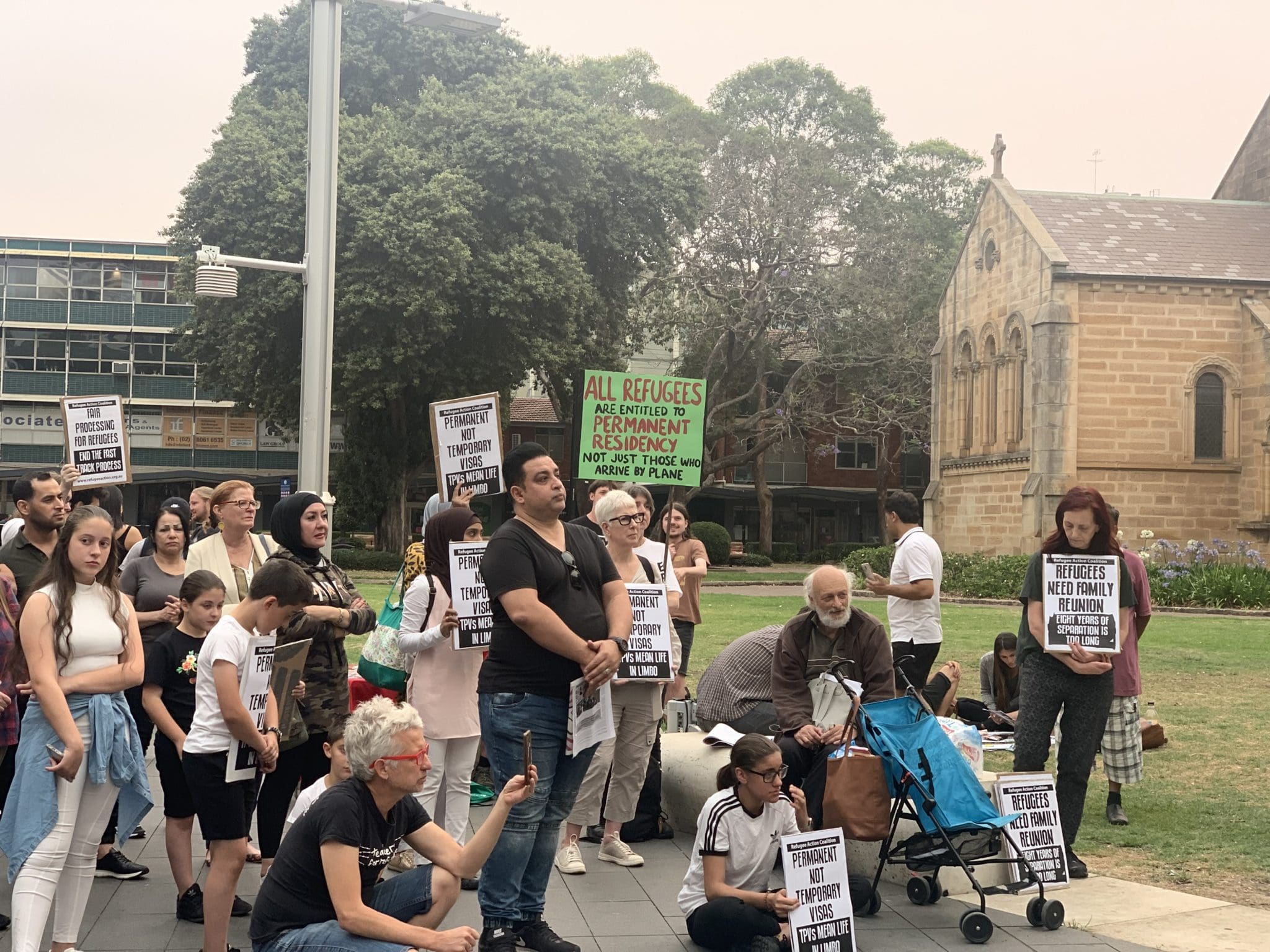Despite the thick smoke and orange skies, protestors gathered in Parramatta’s Centenary Square on Saturday evening to demand permanent, not temporary, protection for all refugees. Protestors demanded the end of precarious Temporary Protection Visas (TPVs), which allow the Australian government to deport refugees to their home countries where they deem them to be “safe”.
The protest occurred in light of the repeal of Medevac legislation on Wednesday, ending the only path to vital medical treatment in Australia for refugees detained on Manus and Nauru.
The “Permanent not Temporary” rally was organised by Justice for Refugees, a grassroots group established in August of this year. Though small, the rally attracted a number of prominent speakers, including Labor MP Julie Owens and former Greens MP Jim Casey.
“When we abolished TPVs, I met people who had been on temporary protection visas for eight and nine years,” said Owens.
“They had detention debts. The government was charging them for the cost of keeping them in detention.”
Owens criticised the lack of security that is given to refugees, including those that already live in Australia.
“For those of us who have our families here today, it’s an opportunity,” said Casey. “For those of us who don’t, we all have an obligation to fight for them.”
Casey chalked up Australia’s treatment of refugees to shifting blame.
“It’s a way to create fear… in order to allow the worst in Australian society to get away with murder. You can talk about people from overseas rather than talk about your boss. You can talk about people from overseas rather than caring about the environment.”
The crowd of protestors chanted “eight years enough,” demanding an end to the processing delays, harsh restrictions and insecurity that plagues those who hold TPVs.
A number of speakers highlighted that TPVs do not allow their holders to travel to other countries and grant them no rights to family reunions. As a result, many refugees have not been able to see their families.
Ali, a representative from Justice for Refugees and themselves a refugee, also spoke to the assembled rally.
“I need someone who has made these [temporary protection] laws to answer to my kids. What will you tell them when they say ‘Dad, when can I see you?’ I don’t answer.”
“[Politicians] use us as a game in election crises, and we have no choice about it.”
As the rally neared a close, protestors were given a chance to speak to an open mic.
“Why do you come to Australia by boat?” said one speaker, a Rohingyan refugee. “Refugees don’t have a choice.”
In a turn of events, a racist heckler briefly interrupted the speeches but was chased off by a protestor.
Australia’s inhumane detention of refugees on Manus and Nauru, which breach its obligations under international law, has been widely condemned by human rights activists and the UNHCR.
The failures of TPVs and the fast-tracked processing system has recently been brought to light in the Morrison government’s attempted deportation of the Tamil Biloela family to Sri Lanka. The Biloela family remain the only detainees in the Christmas Island detention centre after the Federal Court ordered they could not be deported until their appeals had been heard.





